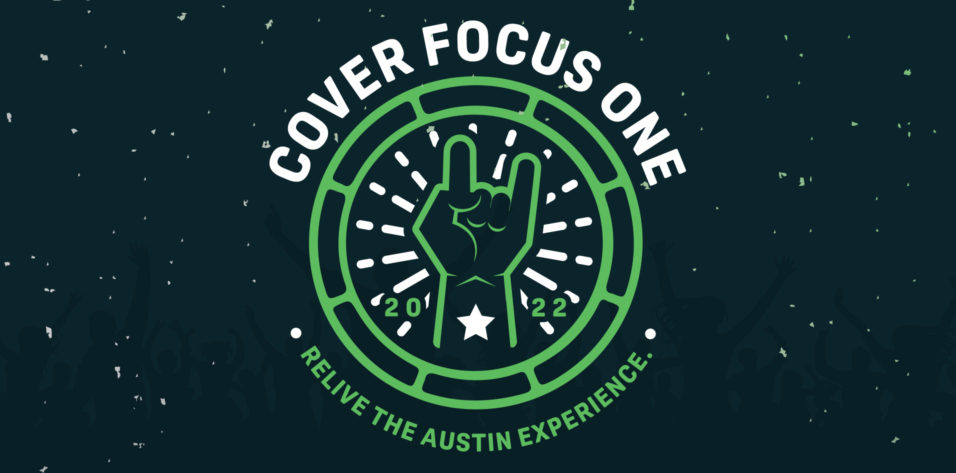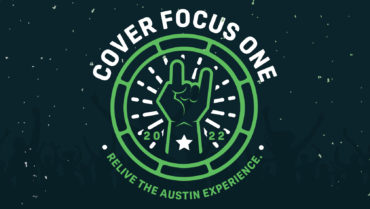When I first heard about the MillennialEYE Live meeting, I wasn’t sure who the event was intended for or whether it would be worth the investment as an incoming ophthalmology intern. While perusing the agenda, I noticed that a mentor of mine was going to be one of the speakers. I shot him a text asking if he thought this meeting was worthwhile for someone at my stage in training. Not 5 minutes later, he called me and said, “No question—you absolutely should go to this meeting. It is specifically designed for budding ophthalmologists like you.” I’ve had the privilege of attending many large ophthalmology conferences, but ME Live was the most high-yield meeting I have ever attended. Here are five reasons why you should attend next year.
#1. Mentorship
At many of the larger academic meetings, it can be difficult to build truly meaningful relationships with mentors and colleagues. There is too much going on and too many people present to effectively network as a trainee. On the other hand, ME Live felt much more intimate, and networking was not only possible but prioritized. Some of the biggest names in our field were there specifically to get to know us and offer their mentorship, and not just for the weekend but going forward in our careers. For example, I have looked up to Gary Wörtz, MD, since I began listening to Ophthalmology off the Grid as an MS1, and I had the privilege of getting to know him at ME Live! In one weekend, I built relationships with world-renowned surgeons whom I can now lean on when applying for fellowship, searching for my first job, and building my own practice.
The mentorship at ME Live is not just designed for residents, however. I was very impressed by how many younger medical students, even MS1s, were in attendance, hoping to learn more about the field and how to successfully apply to residency. I was envious as I watched future applicants sharing a beer with a few residency program directors—what an awesome networking opportunity! At ME Live, you can also meet current or recently matched residents who gladly offer to help you with the application process. As someone who recently matched, I was excited to find myself in the position to be a mentor to younger students. I have already had several phone calls with students I met at the meeting regarding personal statements, “couples matching,” away rotations, and more. Had I attended this incredible meeting earlier on, I may have avoided a few common application pitfalls—don’t make the same mistake as me!
#2. Practical Career Advice
Another feature of ME Live that stood out to me was the emphasis on career development. While many meetings focus on the science of ophthalmology, this meeting also aims to teach you how to be an ophthalmologist. Dagny Zhu, MD, taught us how to harness social media to grow our practices and educate our patients; Shanika Esparaz, MD, addressed the challenges of balancing motherhood and clinical practice; Bennett Walton, MD, MBA, gave a crash course in business essentials for the young ophthalmologist; Blake Williamson, MD, MPH, offered pearls on managing a practice and the importance of culture; and a panel of experts discussed the pros and cons of various practice settings to consider when beginning your career. As a dual MD/MBA student, I enjoyed the open discussions about marketing, finance, and practice management that can’t be found at most academic conferences.
On Sunday, a panel of specialists candidly discussed the pros and cons of the various fellowship options and pearls they wish they had known as a resident. Although there were plenty of speakers from academic institutions, it was interesting to be at a meeting that so openly discussed private practice; this seems fair considering that about 75% of ophthalmologists eventually go into private practice. I was unaware of how many private fellowship options exist for cataract and refractive surgery; this isn’t typically discussed in academia but is a great option for anyone interested in running their own practice one day. It was also explained at ME Live that a majority of industry-related clinical research studies are actually performed by private ophthalmologists, not academicians, through investigator-initiated trials, or IITs. Whatever your dream career looks like, you will walk away from ME Live having gained invaluable insight into how to succeed.
#3. Clinical Pearls
We’ve all watched our fair share of videos on CataractCoach.com, right? How would you like to go through a series of cataract cases and complications with Uday Devgan, MD, himself? At ME Live, Dr. Devgan was joined by Cathleen McCabe, MD; Cristos Ifantides, MD, MBA; and Morgan Micheletti, MD, as they shared their surgical videos and approaches. This session demonstrated the art of cataract surgery and the importance of learning from every case.
ME Live features talks on the latest technologies and techniques from some of the greatest surgeons out there. Ike Ahmed, MD, joined us virtually to discuss the MIGS revolution with Arsham Sheybani, MD, and how MIGS procedures should be a component of anyone’s practice, not only glaucoma specialists. Amandeep Rai, MD, put together a fantastic talk on best practices in biometry and challenged our knowledge on the subject. A panel of cataract and refractive experts spoke about the newest advanced technology IOLs and how to go about selecting the right IOL for each patient.
The clinical discussions at ME Live did not focus only on existing technology. Leaders in each subspecialty gave presentations on emerging solutions within their areas of expertise, including artificial corneas and drug delivery systems, and highlighted the numerous ways in which AI will transform ophthalmology. There are so many unbelievable breakthroughs on the horizon, and these conversations reaffirmed that I am entering the field at an incredibly exciting time. I believe that if you hope to be the best in your field, you should learn from the best—there is no better place to do that than at ME Live.
#4. Industry Introductions
Ophthalmology is a unique specialty in that it is common for ophthalmologists to partner with companies in a consultant capacity as a key opinion leader (KOL). As trainees at academic medical centers, we are not typically exposed to industry partners or educated on how to work with them. In fact, working with industry has a certain stigma attached to it in academic medicine and even in the general population. ME Live may be the only meeting I’ve attended that actually teaches trainees and students what a KOL is and how to get involved with industry. On day 1 of the meeting, I had the privilege of enjoying a teaching breakfast with Cathleen McCabe, MD, and Leo Otero from Alcon, during which we discussed how to break into a KOL role and other ways to get involved. Industry relationships are a very real aspect of an ophthalmologist’s career, and it was refreshing to speak so candidly about this. There are countless opportunities to get involved with product development and clinical trials; you just need to know how to ask.
Throughout the meeting, attendees were able to visit vendor booths to discuss new technologies on the horizon and show interest in working with industry. I had many wonderful conversations with the representatives in attendance and connected with them via email and LinkedIn. ME Live attendees also get hands-on experience with cutting-edge technologies (some of which haven’t yet launched in the United States) in scheduled wet labs. I got to place several MIGS devices (iStent inject W [Glaukos], Hydrus Microstent [Alcon], and Xen Gel Stent [Allergan]), trial the new Veritas phaco system (Johnson & Johnson Vision), and play with the Beyeonics One surgical microscope. If you’re interested in eventually partnering with the companies bringing the next generation of technologies to market, ME Live is a great starting place.
#5. Networking With Peers
One of the things I love most about ophthalmology is how kind and fun all of the people are. As I watched various panels and listened to podcasts throughout medical school, I wondered how these attendings from all over the country got to be so close. It stood out to me that they referred to each other as friends, not just colleagues. I have looked forward to that aspect of the field but was unsure how that level of connection happened. I now realize that it is through events like ME Live and organizations like YoungMD Connect that these real relationships are fostered. I arrived in Austin not knowing any other attendees and left the weekend with dozens of new friends.
Upon returning home from the meeting, I was asked by one of my friends outside of medicine about my experience. He gave me the strangest look when I enthusiastically said, “I had so much fun!” (I guess medical conferences don’t sound fun to everyone?) But that’s the truth: I had a genuinely wonderful time at ME Live and made great friends from all over the country whom I will enjoy keeping up with and collaborating with for the rest of my career. Do yourself a favor: Get involved with YoungMD Connect today, and don’t miss ME Live 2023!



